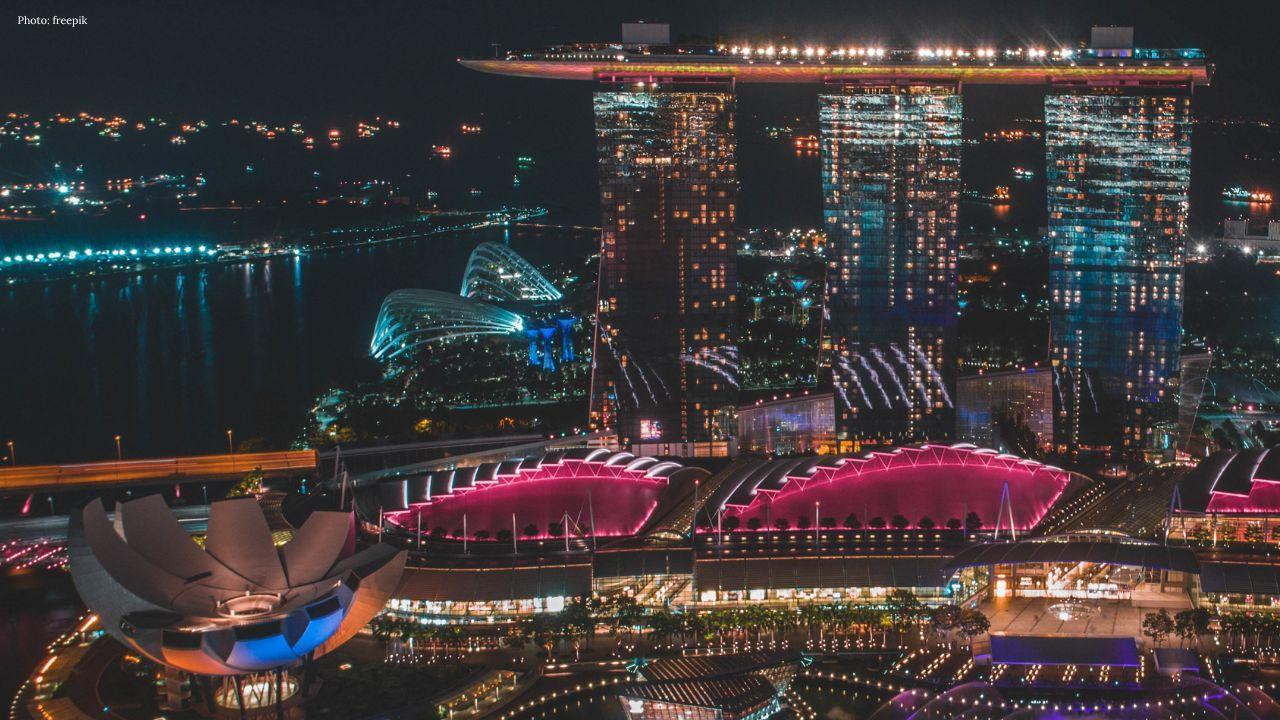You have not yet added any article to your bookmarks!

Join 10k+ people to get notified about new posts, news and tips.
Do not worry we don't spam!

Post by : Anis Farhan
At first glance, smart cities sound like utopias engineered for the future—urban spaces enhanced by digital technology, where traffic moves smoothly, waste is managed efficiently, and services are accessible at the touch of a button. Cities like Singapore, Dubai, and Amsterdam have become poster children for this concept, pioneering digital infrastructure and data-centric urban planning. But beneath the glossy exterior of hyper-connectivity and AI-driven systems lies a web of challenges that question whether these cities are truly “smart” or simply “digitally managed.”
While the idea of integrating the Internet of Things (IoT), data analytics, and automation into everyday governance is progressive, the execution raises important issues. Smart cities are often planned with technology first, and people second—leading to a mismatch between innovation and real human needs.
One of the biggest criticisms of smart cities is that their foundations are often more corporate than civic. Technology companies are major players in the development of these urban models. Partnerships between city governments and tech giants can lead to impressive digital systems, but they may prioritize corporate interests over residents’ well-being.
Case in point: Sidewalk Labs, a Google-affiliated company, had grand plans to redesign Toronto’s waterfront into a smart neighborhood. The project promised innovation and efficiency, but citizens pushed back due to privacy concerns and lack of transparency. Eventually, the project was shelved, showcasing the tension between digital utopianism and democratic participation.
Moreover, in many smart city blueprints, low-income populations are underrepresented. Smart infrastructure often caters to middle- and upper-class residents who have access to smartphones, bank accounts, and stable internet. This exacerbates the digital divide, where those who need better services most are left behind.
One of the most controversial aspects of smart cities is surveillance. CCTV cameras with facial recognition, AI-enabled traffic monitoring, and predictive policing systems are framed as tools for safety and convenience. But these tools can also become instruments of state overreach.
Critics argue that these technologies lead to a “surveillance state,” where residents are constantly monitored without adequate oversight. Data collection on such a massive scale—be it location data, consumption patterns, or biometrics—poses significant privacy risks. Who owns this data? How is it stored? Can it be misused? These questions remain unanswered in many smart city programs around the world.
In authoritarian regimes, such systems may also be weaponized to suppress dissent or monitor specific communities. The line between efficient governance and digital authoritarianism is thin and fragile.
A city becomes truly smart not just when it digitizes processes, but when it becomes more livable, equitable, and resilient. Unfortunately, many so-called smart cities fail on these fronts. For instance, a city may boast an app that tracks water usage but still fail to deliver clean water to marginalized neighborhoods.
Overreliance on technology also introduces a new kind of vulnerability. When everything—from traffic lights to energy grids—is automated and connected, the risk of cyberattacks increases. Ransomware attacks on smart city systems are already on the rise, with some cities being held hostage by hackers demanding payment to unlock essential services.
Moreover, in cases of natural disasters, internet outages, or system failures, digitally dependent cities may struggle to function. A city must be able to operate even when the digital systems falter.
Another layer to the smart city narrative is the claim of environmental sustainability. Smart energy grids, green buildings, and real-time pollution monitoring are seen as steps toward eco-conscious living. However, experts warn of “greenwashing,” where superficial sustainability measures distract from deeper systemic problems.
Building and maintaining high-tech infrastructure involves significant carbon emissions, resource extraction, and electronic waste generation. Additionally, the rapid push toward electrification and AI systems often overlooks the ethical and environmental implications of mining rare earth elements or disposing of old tech.
A smart city can only be sustainable if it balances innovation with environmental responsibility, including circular economy practices, ethical sourcing, and inclusive urban policies.
There’s a growing call among urbanists to shift the conversation from smart cities to smart communities. While the former emphasizes technological systems and centralized control, the latter focuses on people-centric development. Smart communities prioritize local needs, cultural context, and social equity alongside tech integration.
Instead of investing millions into AI-powered policing or app-based traffic flow solutions, cities might see better outcomes by improving public transportation, affordable housing, and access to education. True smartness lies in listening to citizens, addressing local challenges, and ensuring that innovation serves the many—not just the few.
Community-driven projects, like participatory budgeting, open-data platforms for civic engagement, and co-designed public spaces, offer scalable and inclusive models for urban development. These approaches might lack the glossy “tech appeal” but are far more effective in fostering long-term resilience and citizen trust.
The term “smart” itself is subjective. Is a city smart because it uses 5G-enabled buses and AI trash bins? Or because it’s safe, affordable, inclusive, and adaptive to change?
Currently, much of the smart city narrative is dictated by private sector stakeholders, not by the people who live in these cities. Urban planning, however, should be rooted in participatory governance. A city that automates traffic but neglects accessible healthcare or green space is not smart—it’s simply efficient.
Citizens must have a say in what technologies are adopted and how they are used. Public consultations, impact assessments, and transparent procurement processes are essential components of responsible urban digitization.
It’s not about abandoning technology, but about using it wisely. Smart cities should be ethical cities—where data rights are protected, where innovation uplifts the underprivileged, and where progress is measured not in bandwidth but in well-being.
Governments must build legal and ethical frameworks to regulate tech deployments. Transparency, accountability, and inclusiveness must be at the core of smart initiatives. Otherwise, cities risk becoming high-tech dystopias—beautiful on the outside but broken on the inside.
The true intelligence of a city lies not in its gadgets or AI capabilities, but in how well it serves its people. Urban futures should not just be efficient—they must be just, humane, and adaptable. Because in the end, what’s the point of a “smart” city if it forgets to be kind?
The information presented in this article is intended for editorial and informational purposes only. It reflects current discussions and analyses surrounding smart cities globally. Readers are encouraged to explore multiple perspectives and consult experts for a more comprehensive understanding. The views expressed are those of the author and do not represent the official stance of Newsible Asia.










Sumo Rocked by New Bullying Scandal as Terunofuji Admits Abuse
Retired grand champion turned stablemaster reports himself to authorities for violent conduct toward

Son of Oil Tycoon Riza Chalid Sentenced to 15 Years in $17 Billion Corruption Scandal
Jakarta Corruption Court convicts Muhammad Kerry Adrianto Riza in high‑profile Pertamina graft case

Marina Bay to Celebrate Disney Adventure With Fireworks & Fun
UOB Marina Bay Sands & Singapore Tourism Board join Disney Cruise Line for a 2-month nautical celebr

Rashmika Mandanna and Vijay Deverakonda Tie the Knot in Grand Udaipur Wedding
The beloved actors celebrated their Telugu and Kodava heritage with traditional ceremonies at ITC Me

Raja Ampat Welcomes Back Endangered Zebra Sharks
Scientific collaboration and community education drive rare species repopulation in the Coral Triang

Tomorrowland Thailand Set for Full‑Scale Asian Debut in December 2026
Thailand to host world‑renowned electronic music festival in Pattaya, expected to draw tens of thous